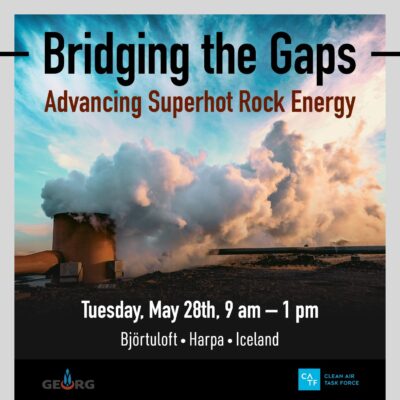Netherlands proposes changes to mining legislation to streamline geothermal development
With planned amendments to its Mining Act, the Minister of Economic Affairs and Climate (EZK) in the Netherlands plans to streamline extraction of geothermal energy in the country as part of its sustainable energy efforts.
In a letter to the House of Representatives in the Netherlands, Eric Wiebes Minister of Economic Affairs and Climate (EZK) in the Dutch government has announced plans to adjust the Mining act to streamline the extraction of geothermal energy.
With the planned amendments, the plan is to offer operators more time to request a production license. Currently, developers need to apply for an exploration license and after exploration, drilling and testing, a production license is required to extract geothermal heat.
In the new situation, operators can already gain heat for some time before they have to apply for the production license. This makes it possible to submit a well-substantiated extraction plan, says Frank Schoof, chairman of the Platform Geothermie, the organization in which parties in the geothermal sector are united.
The Minister expects to submit the necessary legislative amendment in the course of this year. Then the application for a subsidy under the SDE+ scheme will also be facilitated. The SDE+ (in Dutch: Stimulering Duurzame Energieproductie) is an operating grant, to stimulate sustainable energy production.
The minister also announces in the letter that he wants to increase the knowledge of the Dutch subsurface. More seismic research must take place and this data must be made publicly available, so that market parties know where they can successfully extract geothermal energy. Wiebes has asked EBN to work out a plan for this. EBN (Energie Beheer Nederland B.V.) is a natural gas exploration, production, transportation and sale company owned by the Dutch Government.
He also wants more guidance on knowledge development and innovation in geothermal energy. In his opinion, this is now too fragmented because geothermal energy is still a young sector. Here too, EBN has a role to play: it must take more control.
Wiebes will impose stricter requirements on operators of geothermal installations. These installations must meet higher technical conditions and the financial capacity of the operators must be improved. This has an important role for DAGO, the Dutch association for geothermal operators. In addition, the Platform Geothermie Foundation gets more room to communicate about geothermal energy so that the support for this form of heat extraction among the Dutch public is increased.
The Ministry of EZK sees geothermal energy as an important sustainable alternative to natural gas. In 2016, Dutch geothermal production was 2.7 PJ. The ministry’s commitment is 15 PJ in 2030. Geothermal energy is an important source of heat for, among other things, a future climate-neutral glasshouse horticulture. To achieve the 15 PJ, the number of projects will have to double from approximately two to four to five new geothermal plants per year. With the announced measures Wiebes wants to accelerate this acceleration.
The first Dutch geothermal installation was put into operation in 2007. Last year the Netherlands had fifteen installations. According to Schoof, Wiebes’s measures are a major step forward for the geothermal sector.
Source: Nieuwe Oogst


















